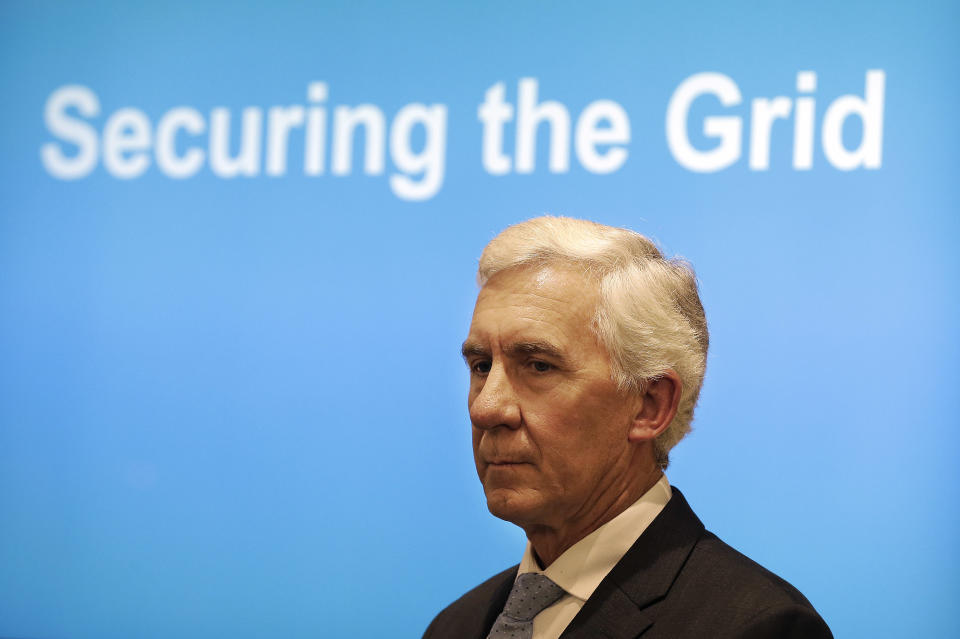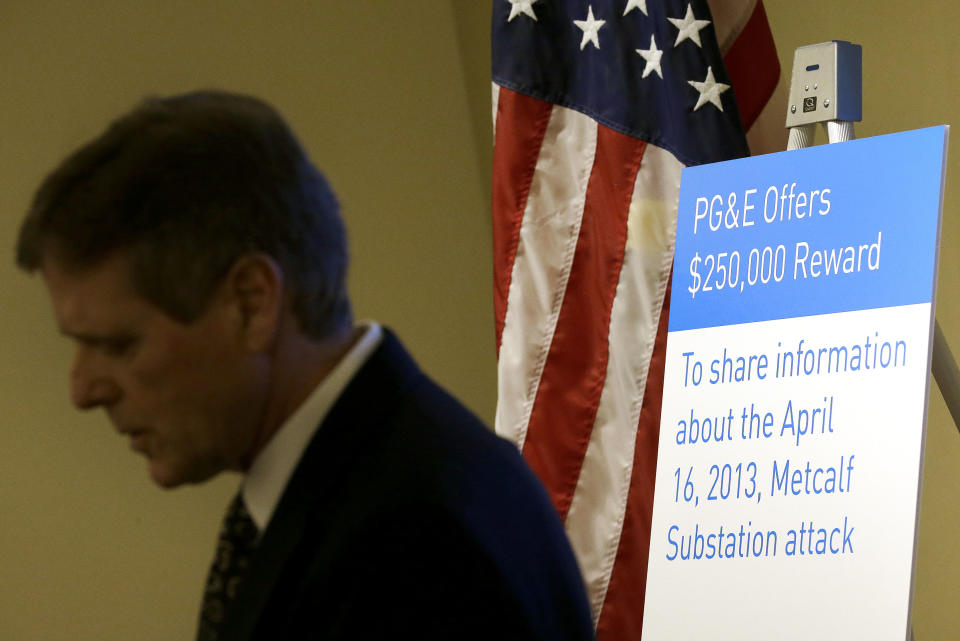PG&E offers $250K reward in California grid attack
SAN FRANCISCO (AP) — Pacific Gas & Electric Co. offered a $250,000 reward Thursday for information leading to an arrest and conviction in a startling attack mounted nearly a year ago on telephone lines and the power grid in Silicon Valley.
The nighttime, coordinated attack on April 16, just a day after the Boston Marathon bombings, involved snipping AT&T fiber-optic lines to knock out phone and 911 service in the area and firing shots into a PG&E substation.
Millions of people in Santa Clara County were asked to conserve energy after power lines were damaged.
Former Federal Energy Regulatory Commission chairman Jon Wellinghoff has called the incident an act of terrorism. FBI spokesman Peter Lee reiterated Thursday, however, that the agency has no indications to back that up and the investigation is ongoing.
"One year later, the perpetrator or perpetrators of this crime remain at large and we want to help change that," Gregg Lemler, PG&E's vice president of electric transmission operations, said at a news conference Thursday announcing the reward.
PG&E's reward would be funded by shareholders and comes nearly a year after AT&T offered its own $250,000 reward for information leading to arrests.
The sniper bullets knocked out 17 transformers powering parts of Silicon Valley and caused more than $15 million in damage.
Officials rerouted power to avoid a blackout, but it took PG&E workers nearly a month to repair the damage. No arrests have been made.
Wellinghoff, who was in office during the incident, said he reached his conclusion after consulting with Defense Department experts about the attack.
On Thursday, Wellinghoff's successor and FERC's acting chairwoman Cheryl LaFleur testified before Congress about a report blasting officials for improperly allowing widespread access to a sensitive document the commission created in response to the attack on the PG&E substation.
The document outlined specific locations where the nation's electric grid is vulnerable to physical threats, and should have been kept secret as a national security matter, Energy Department Inspector General Gregory Friedman said Wednesday. Instead the information was provided in whole or in part to federal and industry officials in unsecured settings.
LaFleur told the Senate Energy Committee on Thursday that employees are now "wiping and scrubbing all databases" and taking other steps to protect sensitive information.
The attack on PG&E's substation was a "game changer" in that it was much more sophisticated than others mounted on substations in the past, Lemler said. The utility, which provides power and gas to a wide swath of Northern and Central California, would not comment further on details pertaining to the investigation.
PG&E has said it plans to spend more than $100 million on security measures, including installing opaque walls and deploying advanced camera systems, enhanced lighting and additional alarms at the San Jose substation and an unspecified number of other critical sites. The company also has stationed guards at substations around the clock and improved its cybersecurity measures, Lemler said.
A California lawmaker, meanwhile, has introduced legislation that would require state utilities to beef up security.
The bill by state Sen. Jerry Hill, D-San Mateo, would require utilities to assess security risks and make needed improvements. The bill would also require utilities to better coordinate responses to security breaches with law enforcement.
___
Associated Press writer Matthew Daly in Washington contributed to this story.







